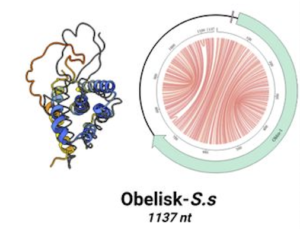While there may be some positive benefits associated with the production of genetically engineered salmon, there are a number of important unanswered questions regarding its health and safety. It may be easily produced and acquired, but is AquAdvantage salmon as nutritionally robust and safe to eat as wild salmon? And on a broader scale, does it pose any potential risks to the health of people and the planet?
Before AquaBounty Technologies initially sought FDA support of AquAdvantage salmon in the early 1990s, the Agency did not have a framework for regulating the development and approval of genetically engineered animals. Genetically engineered plants are regulated by the USDA, but there is no such oversight in place for GM animals.
AquaBounty petitioned the FDA to consider its transgenic fish as a “new animal drug application.” By applying for investigative review under the FDA, AquaBounty paved the way for all future genetically engineered animals to be regulated in the same manner as drugs in the United States (Van Eenennaam A & Muir W. 2011. Nature Biotech. 29(8): 706-710).
Following its investigation, the FDA found AquaBounty’s transgenic fish to be “as safe as food from conventional Atlantic salmon,” asserting with “reasonable certainty” that it anticipates “no harm from the consumption of food from this animal.” Furthermore, according to FDA scientists, the genetically engineered salmon “are not expected to have a significant impact on the quality of the human environment.”
Not everyone is as confident as the FDA. Opponents of the approval have expressed concerns about the adequacy of the FDA’s food safety testing on the genetically  engineered fish DNA. Notably, the Agency “relied heavily on only four studies in the approval process, with one of the studies nearly twenty years old, and the other three supplied by AquaBounty itself (Lee-Muramoto M. 2012. Drake J. Agric L. 17(2): 311-367).
engineered fish DNA. Notably, the Agency “relied heavily on only four studies in the approval process, with one of the studies nearly twenty years old, and the other three supplied by AquaBounty itself (Lee-Muramoto M. 2012. Drake J. Agric L. 17(2): 311-367).
Concerns surrounding the human consumption of AquAdvantage salmon include the potential toxicity, allergenicity, and increased presence of growth hormones in edible tissues of the genetically engineered fish. Critics fear that the FDA is basing its approval on very limited and potentially biased data, and contend that the fish not be approved until more rigorous human safety testing is conducted.
Environmental impacts
In addition to the potential health risks associated with GE fish consumption, opponents of AquAdvantage also fear the environmental ramifications. Pointing to the tremendous toll taken on the marine ecosystem by salmon farming, they worry that adding genetically engineered farmed fish to the mix will pose an even greater threat to already endangered wild salmon populations.
Raised in pens in open ocean waters, and often located along the migratory paths of wild salmon, farmed salmon have contributed to the collapse of local salmon runs by spreading disease and parasites, disrupting natural migratory patterns, and competing for food and mates. In some areas, the impact of salmon farming on wild fish has been so devastating that aquaculture has been altogether banned. The state of Alaska, for example, which is home to a huge and valuable wild salmon population, does not allow salmon farming.







